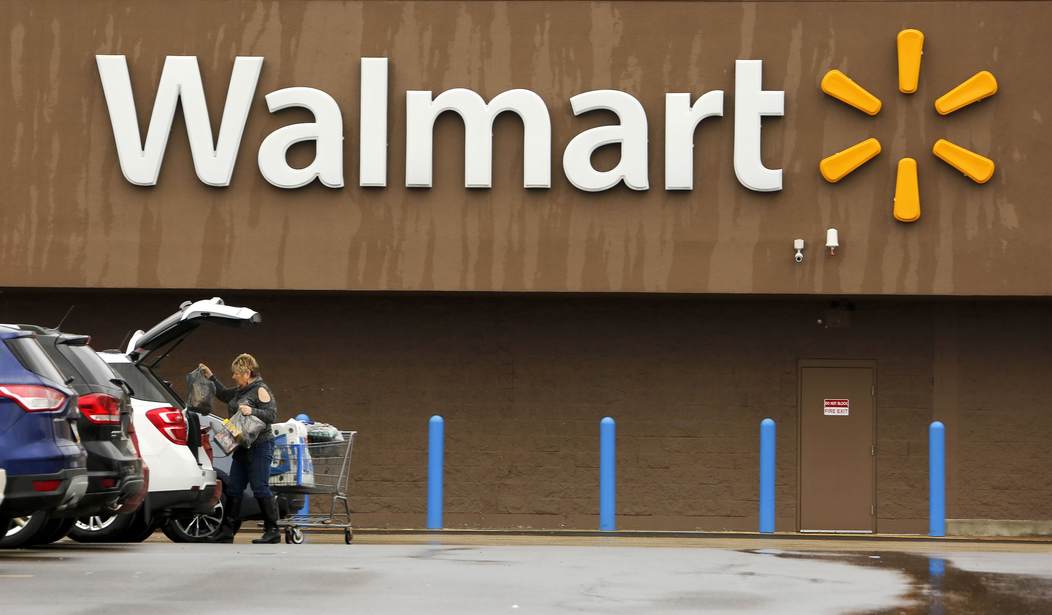The shoplifting industry has been making great strides thanks to lax laws in blue states on property crime. Over recent years, we have seen a multitude of reports about rampant smash n’ grab operations in which hordes of thugs go into retail stores and begin grabbing merchandise.
Even smaller operations involving one or two individuals have blossomed, with retailers struggling to find ways to stop them. Yet, the problem persists, which has forced several brands to shut down stores in certain areas of the country.
This trend has prompted regular everyday people to step up to stop these individuals from driving up costs by stealing large amounts of products from the stores they frequent. The Blaze published a roundup of several news reports documenting instances in which civilians have taken action against shoplifters.
At a Walgreens store in Alameda, California, a man body-slammed a suspected shoplifter and even took out his accomplice, who tried to free his partner. The two men fled from the store shortly after.
In Federal Way, Washington, a Walmart customer took down a drunken shoplifter who was attempting to leave the store with an item he had stolen.
A similar incident occurred at a T.J. Maxx store in Mira Loma, California. A suspected shoplifter tried to steal entire bags of clothing when a customer confronted her. The two engaged in a scuffle, and the would-be thief fled the building.
The rise in shoplifting has occurred due to laws passed in states like California, New York, Washington, and others that take a lenient approach to theft. They have emboldened criminals to carry out these crimes with impunity.
California has a law that treats thefts under $950 as misdemeanors, which leads to lax law enforcement and prosecutorial responses. In many cases, employees do not intervene because of fears of losing their jobs or being hurt. What is particularly infuriating about this is that even if police apprehend these criminals, they will only be freed shortly after because progressive district attorneys do not wish to prosecute them.
In New York, the shoplifting industry has become quite lucrative. It is costing retailers about $4.4 billion and has created a shadow economy in which these criminals are selling the products they pilfer from businesses.
Even further, left-wing media outlets have responded by gaslighting their audiences, tricking them into believing that the issue isn’t widespread and that it is just right-wing media that is exaggerating the problem. The New York Times last year published a piece in which it insisted that “the increase in shoplifting appears to be limited to a few cities, rather than being truly national.”
Retailers have responded by taking it on themselves to stop thieves from stealing their property. RedState’s Ward Clark wrote:
Now, retailers are starting to take matters into their own hands. One, Home Depot, is setting up high-tech tracking centers and working with local law enforcement to break up organized theft rings.
When SWAT officers swarmed a house in a sleepy San Jose, California neighborhood last month, they found what could best be described as a make-shift hardware store inside: Shelves lined with boxes of brand-new tools, bathroom fixtures and spools of industrial wiring.
It resembled a mini Home Depot. And in some ways, it was.
Much of the cache of products—worth about $150,000—had been stolen from real Home Depot stores. The retail chain’s internal security force spent months investigating the thefts, scanning security camera footage, tracking license plates and surveilling suspects. They connected dots of the criminal network allegedly responsible and shared their findings with the Santa Clara County Sheriff’s Office, which executed search warrants and arrested the suspects.
That Home Depot internal security force — which, I might add, was made necessary by the failure of local authorities in many jurisdictions to control this problem — looks like it would do credit to any big-city police department.
There can be absolutely no surprise at the rise in regular folks taking it upon themselves to stop these thieves. Since local and state governments are uninterested in addressing the problem, people have to do it themselves.
In many of these incidents, those trying to stop the shoplifters complain about the cost of the theft being handed down to the law-abiding consumer. At a time when Americans are struggling to pay for groceries, fuel, and other necessities, it appears many are at their breaking point.
While it is nice to see regular people step up and defend their communities, the reality is that they should not have to. The proper role of government is to protect our rights – including property rights. The fact that local and state governments continue to prioritize protecting criminals is a slap in the face to those who are forced to pay taxes to people who are uninterested in doing their jobs.













